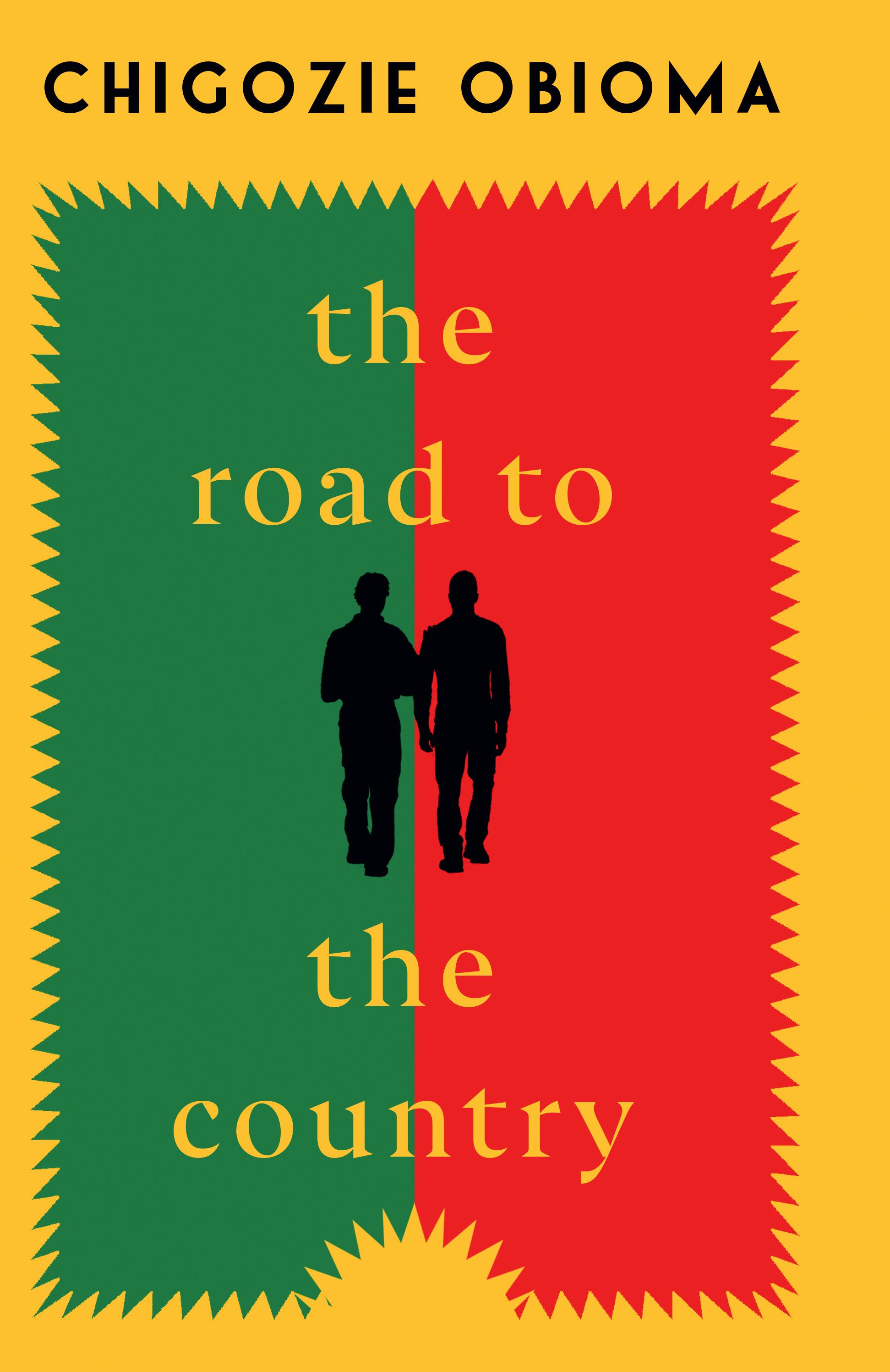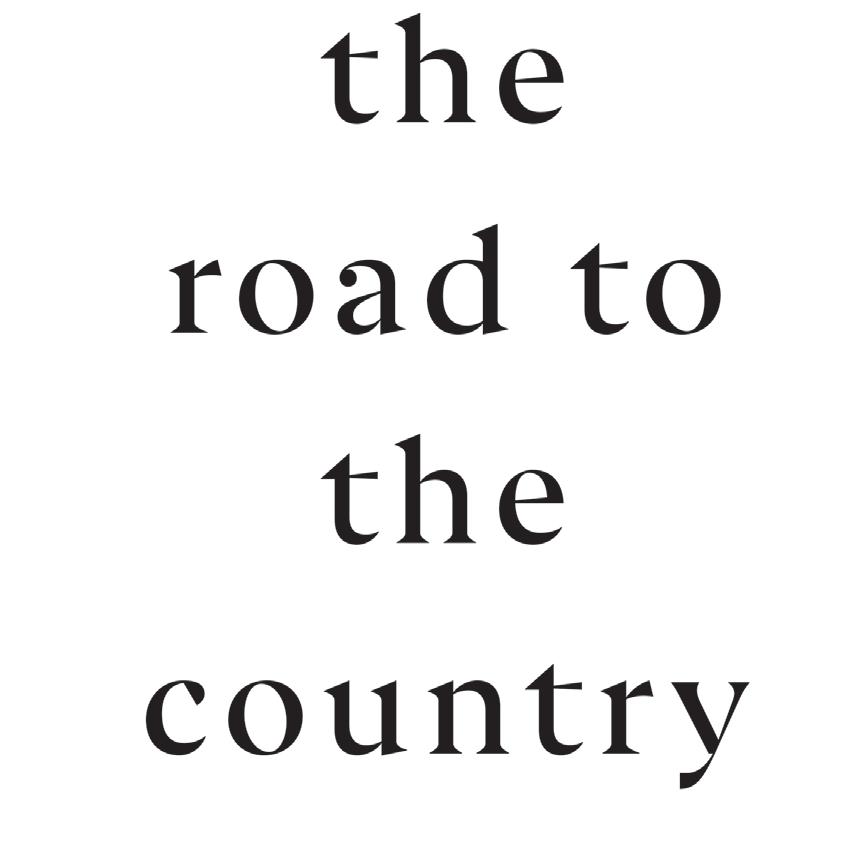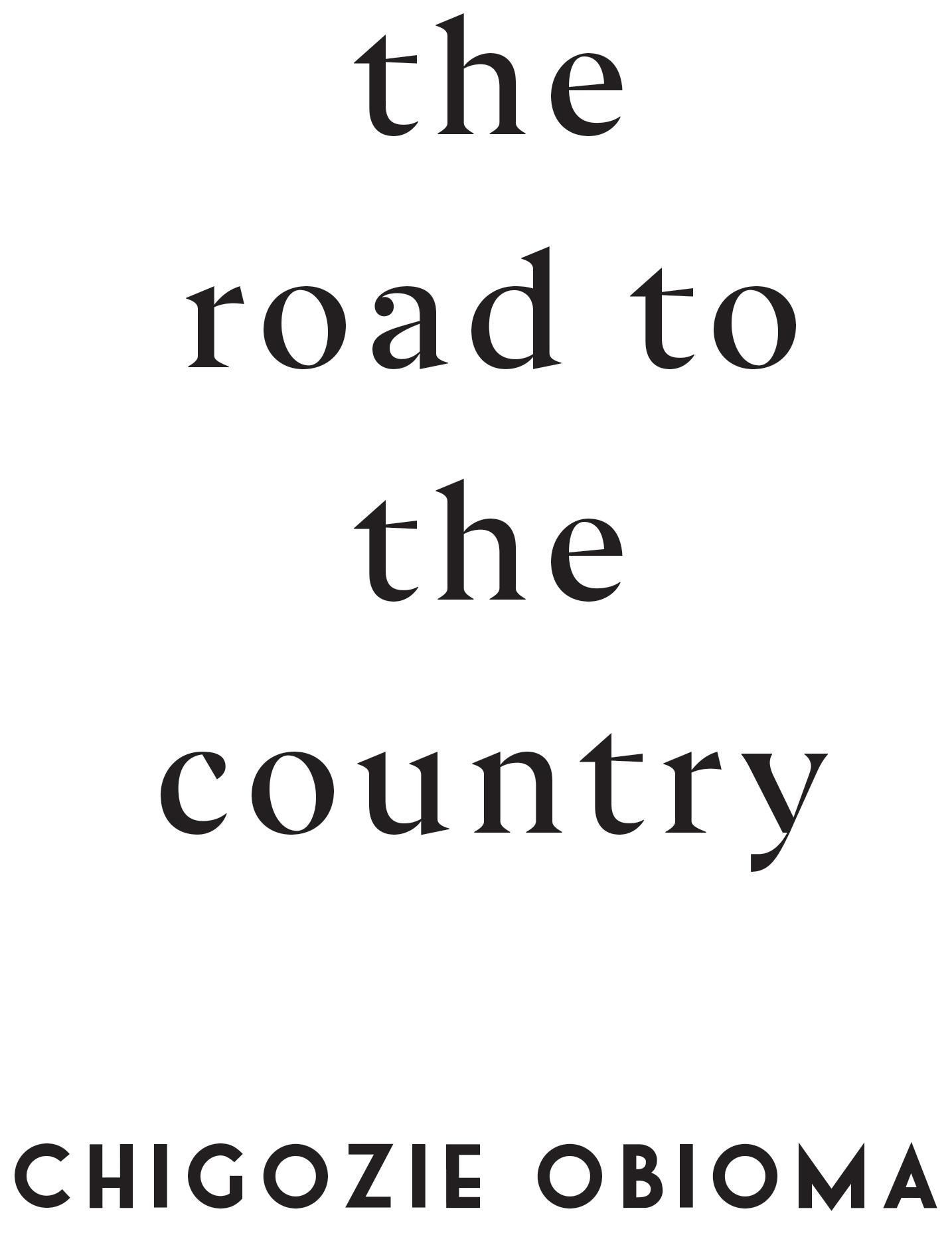The BIRTH of the STAR


rTHE ROAD TO the hills is tenuous in the dark. When approached in daylight, it presents itself as a straight path. At night it acquires a mystic character, appearing sinuous and much farther. But once the Seer crosses the small creek, the road becomes more distinct, glowing under the eye of the moon as if patiently waiting for him. The trees at the foot of the hills are thin and short, but their leaves – like those of all old trees – bear in them a provincial history of the universe. And now, having reached the summit of the hill, he stands in triumph. The star he has been following for much of the night has dissolved into a mosaic of colours – a bright purplish mass ringed with scattered archipelagoes of yellow and crimson. He stands under the fugitive colours of its light, teetering on the verge of tears.
The Seer unrolls the raffia mat first, then sets down the things he has brought: a silver bowl, a water-filled demijohn, an amulet of stringed cowries and snake teeth. With the weight of dreams bearing down on him, he empties the demijohn into the bowl. The water stirs, bubbles up, and settles, its dark surface creased with spots of bluish starlight. He feels an anxious thrill in his body, for he knows that he is inching closer to that moment when Ifa’s vision will begin and he will bear witness to the future of the child about to be born. The Seer has done this ritual only twice before: once under the supervision of his master a decade ago, in 1937, and three years later by himself. He has come to these hills bearing the dignity of a transgressive, knowing that he seeks this vision in part to redeem himself. Since the death of his beloved wife, his life has been stripped of its purpose by grief, so that all he wants now is to someday understand what happened to her.
He clasps the amulet between his fingers and looks up at the horizon as it constricts, folding into the centre where the prominent star he’d come to observe stands radiant. The star combusts in a spasm of light and falls, tracing down like a flaming spear. It comes to rest just
above the hill, over the Seer’s head, drowning him and the bowl in its bluish light. The Seer gasps, for he knows the meaning of this: the person whose star falls out of the sky and rises back up will be among the rarest of mankind, an abami eda: one who will die and return to life.
‘Baba, are you seeing this?’ the Seer says, pointing to the sky as if his master, dead now two years, can see it. For so long, he’s been wanting to experience this galactic miracle his master had often spoken about, to bear witness to the vision of a life that will defy death. After twenty-five years of practising astral divinations, he has beheld it.
The Seer throws the amulet into the bowl. The water bubbles, calms, the ripples spreading in a widening gyre. The Seer begins to hear voices – first distant and indistinct, as if worlds unknown and familiar are bleeding into one another from different times and planes of existence. Colours flash in his eyes as voices erupt, fade out, and rise again out of the chaos. All the while, he mutters incantations. Around him, the night thickens. Drawn by the strange light of the bowl, insects mob him, and bats flit about the surrounding trees.
The first images of the vision are grainy – like something seen through wet glass. But slowly it clears, and there appears the figure of a man in a room with a yellow bulb hanging from the ceiling by two coloured wires. He is young, dark-complected, with a boyish face. The man is looking out the window of the room.
As if he has slid from the old universe into the vision’s new, future one, the Seer finds that he can see the same things as the unborn man in the vision. He gazes through the unborn man’s eyes for a moment, transfixed, awash in the light of this yet uncreated world.
4 CHIGOZIE OBIOMA
1.FOR THE FIRST time in nearly an hour, Kunle rises from the cane chair and looks at his wristwatch, then at the small bush outside. The rain, which had started shortly before he sat to write, has stopped now. On the soft earth closer to the window, a small bird totters, a writhing red worm clasped in its beak. He feels again the presence, the unusual sense of something, a thing alive yet invisible, watching him. He glances up, then around. But there is no one.
He begins to go through the ‘story’ he has just written. At once he is surprised by how many of the details about the accident have remained in his mind, even after all these years. It was only this morning that he’d walked into the auditorium near the Law Building and heard a lecturer speak about writing to free oneself. He’d rushed home, picked up a pen and the notebook. And now, pieces of his childhood –blown in from remote corners of the past – are gathered in these few sheets of foolscap paper.
As he re-reads, the details rise before his eyes in vivid colours: Nkechi, standing beside him, nine years old just like him. She wears on her face the beauty of youth; her hair is permed and ribboned, and her skin shiny with cream.
‘Darling, let us send Tunde outside, oh?’ she says, leaning into his left ear. ‘Let him not disturb us.’
‘Oh, okay,’ he says.
Nkechi whispers something else to him, and abruptly he turns towards the door as Tunde, only six, comes in swinging. Tunde tells them he wants stew, and rice, and goat meat. Kunle listens to his brother’s chatter with half his mind as Nkechi steps closer, cups her hand around his ear, and says, ‘Darling, send him away – o? Mmhuu . . . Send him away so that he will not disturb us again.’
Kunle leads his brother out of the kitchen to the yard, partly grassy, partly dirt. He picks up a small green football from the dirt and kicks it over the fence.
‘It is a goal! It is a goal!’ Tunde yells and runs out of the compound after the ball.
Kunle hurries back into the house and locks the door. He is clasping his hands around Nkechi in embrace when they hear Tunde’s scream.
This moment was hard for Kunle to write – four lines on the foolscap sheet here were erased and rewritten, in some places twice over. But what he allowed himself to put down in the end is that he is confused, dazed. He runs in the direction of the scream and meets instead a small crowd of people. Tunde is lying on the ground beside an Oldsmobile whose fender has been damaged, doors flung wide open, and from whose rear a whiff of smoke is rising. Tunde’s face is covered in blood, his hands thrown apart. ‘Tunde! Tunde!’ Kunle cries, rushing forward towards his brother. He finds himself being pulled back by stronger hands as he kicks and flails, crying his brother’s name.
Kunle puts the book down presently and rises as if new blood has been pumped into his body, stirring every limb with its fresh, hot life. What should he do with this writing? For a long while he stands there with these thoughts, until he hears a knock on the door. He looks about at his room and then, quickly, he dumps the half-eaten bowl of garri into the bucket under the table and tosses a dirty shirt behind the bed, leaving only a library book on the bed.
Uncle Idowu’s belligerent voice follows the persistent knocking: ‘Kunle, have you gone deaf?’
6 CHIGOZIE OBIOMA
At once, Kunle fumbles with the lock, opens the door.
‘Alagba?’ Uncle Idowu says. ‘What is the problem?’
‘Am sorry, sa. I was asleep. I was—’
‘Eheh – by this time?’ Uncle Idowu says, closing the door and gazing at the clothes hanging on a blue rope along the wall.
‘I’m sorry, sa.’
Uncle Idowu sits on the sofa, his protruding belly looking like a big round ball.
‘I don’t even know if . . . What are you doing?’
‘I want to go and buy you mineral, Uncle,’ Kunle says, glancing up from tying his shoelaces.
‘No, no, sit down, Kunle. I am not here to drink Fanta or Seven Up. Your father sent me to give you a message.’
Kunle sits on the bed, facing his uncle in the full glare of the evening sun.
‘You have heard that there is war in Eastern Region, abi?’
Kunle shakes his head. ‘I’ve been—’
Uncle Idowu’s eyes go wide. ‘What? You have not heard?’
Ashamed of his answer, Kunle only mutters ‘No’ under his breath. His transistor radio has been out of batteries for a long time. But now it becomes clear to him that there were signs he simply missed: the first was of two boys in his class who simply disappeared – Igbo twin boys. Both were outspoken and raised several issues during the course on Nigerian history. Since the middle of the last semester, both have disappeared. And only two weeks ago, on his way to the hall to take his Law of Contract exam, he saw students protesting outside the vice chancellor’s office, holding up banners that said things like NO WAR!
ONE NIGERIA! END TRIBALISM!
‘Kunle, do you know the meaning of this?’ Sitting forward, Uncle Idowu pushes the sleeve of his agbada from his elbow back to his shoulder. ‘There is a war happening in your country and you don’t know? Just imagine that!’
‘I am sorry, sa.’
‘Turn a new leaf, eh – turn a new leaf, young man,’ Uncle Idowu says, reverting to English, the language he speaks when angry or tense.
The ROAD to the COUNTRY 7
‘I have told you this isolation is not good, eh? You are a young man, nitori Olorun!’
‘Yes, sa.’
‘Ehen, Ojukwu and his rebels have declared war . . . Anyway, that one is their problem. I am here because of your brother. That boy has vanished like a mist.’
‘Eh?’ Kunle says, turning with the hurried shock of a snakebite.
‘Oh, yes! Your father sent me telegram and told me. Somebody –his friend, a girl. Imagine small boy like him following woman into a war zone. A boy who cannot walk . . . who sits only in wheelchair?’ Uncle Idowu sighs. ‘Children nowadays, eh! Can you imagine? . . . Sha, you have to go to Akure as matter of urgency – first thing tomorrow morning.’
Kunle nods.
‘After all, school have finished for this term, abi?’
‘Yes, sa – since last Friday, sa,’ Kunle says and casts his eyes down again.
‘You see? Almost three days since school finish and you are still here, eh? Don’t you have family?’
‘Not-thin, sa . . . I was . . . I—’
He does not lift his eyes to look at his uncle, knowing that he cannot admit that for the past week, he’s been thinking of going home. But every time he made up his mind to go, he would recall the accident – Tunde being carried away, bloodied – and it would bring the fear of encountering his brother, of being faced with the reality of what he did. Instead, in the past few months, he’s been writing letters home every two weeks – to Tunde. He did all his talking in the letters, usually about small things (the books he’d read, the history of English common law), but always, he ended each note with a plea – that Tunde forgive him. And each time he mailed a letter home, he felt relieved. But soon he’d become doubtful of the letter’s efficacy, and it was this feeling more than anything else that kept him away from Akure.
Uncle Idowu hands him two one-pound notes. ‘That’s your transport money, eh? Make sure you go tomorrow.’
Kunle stands behind the door after Uncle Idowu leaves, pained by
8 CHIGOZIE OBIOMA
the fact that his uncle is right: he is living a hermitic, selfish life. For the last few days, he has been gathering up bits and pieces of his past like a mole, filling the room with images of his brother before the accident: the times they slept together on the same bed, when they played kantas with bottle caps or drew sketches of each other on the wall of their shared room, or sang with their mother. One of these memories stood out: the moment in ’58, two years after the accident, when he overheard his mother say to his father that the accident had happened because Kunle was cursed: ‘It is a curse, surely . . . I have always known since the prophet came here on the day he was born. If not, then explain it to me how this evil would befall his own brother?’
For many years since that night, Kunle has lived within himself, carving his own small roads. He has no friends and has avoided – as if by some inner protestation – anything that could bring him close to anyone. He hadn’t thought of this as a problem until the morning after the military coup in July the previous year, when he rode his bicycle into the streets, oblivious of the coup and the attendant curfew. A convoy of soldiers immediately shouted at him to stop, and in fear, he keeled over and the bicycle slid from him, its wheels spinning. They searched him thoroughly and confirmed that he was indeed a nineteenyear-old, first-year student at the university and not one of the coup plotters. From that morning onwards, he began trying to mend his life – visiting Uncle Idowu every two weeks and becoming friends with a girl in his class. But he soon found her talkative and overbearing. And when she asked him one evening if he’d ever had sex, he withdrew.
Now Kunle lies on his bed, staring at the yellow bulb at the centre of the room. When he was a child, he often stared at lights until spectral worlds emerged from them and led him into wild landscapes of the imagination. He tries to imagine how his crippled brother could possibly survive a war, but he finds instead an increasing sense of unease, which keeps him awake for much of the night.
He leaves at first light with his belongings in his briefcase, treading with the rhythm of a thing severed from its anchor. He finds a crowd of Igbo people gathered at the motor park like refugees, some carry-
The ROAD to the COUNTRY 9
ing a strange multicoloured flag. At once, the feeling of something fundamental having changed in the world takes hold in him. It floats and eddies along the expanse of the five-hour bus journey to Akure, but once he steps through the gate of his parents’ compound, the feeling settles. The gravity of what has happened is clear on his parents’ faces. He has not been home in thirteen months – since he started university in May ’66.
His mother looks older, patches of grey hair at the edges of her weakening braids and wrinkles around her eyes. She embraces him. His father – once a strict, commanding figure – now appears thin, his face full of hair. Small sands of sleep are nestled in both ends of his bloodshot eyes. He speaks with a tremble in his voice, as though he were not the same man who’d often wielded the whip. Like the accident, Tunde’s disappearance happened so suddenly – as if the trouble had walked in on them in broad daylight with noiseless, black feet, and wreaked its wrath before anyone could stir.
10 CHIGOZIE OBIOMA
WHEN HE HAS washed himself and settled back on the couch, it strikes Kunle that he must find out more about what is happening – this ‘war’. First, he notices that there are more photos on the sitting room wall: ones of Tunde’s christening; Tunde in a red bow tie and suit at his two-year-old birthday; one in which all four of them pose with Father Christmas in December ’54; one of Tunde in his wheelchair. Kunle turns away from the last photo, reminded of the day it was shot: in ’65, only two years ago. Nkechi had insisted that her family take Tunde with them on a journey to their home town for Easter. On the day they left, Tunde had dressed in a sweater and bell-bottom trousers. He looked the happiest Kunle had ever seen him since the accident. As he was about to be carried into the car, he turned to his parents and said, ‘I love you, Maami, Paami.’ And, glancing reluctantly in Kunle’s direction, he said, ‘And you, Egbonmi.’
‘Do you think Tunde is in serious danger?’
‘Eh – ewu? Do you ask a rat trapped in a cat’s den if he is in danger? He is in the baba of dangers! I am not saying this with a small tongue. You have not been listening to news?’
His father says ‘news’ in English, his voice tinged with quiet anger.
2.
‘No, Paami . . . Ehm, we have been writing exams, and I was reading.’
His father groans, and begins to rub his hairy shins. ‘It did not begin yesterday. Our elders say what dies flatly on the ground remains more visible than what hangs on a hill. I have been following this crisis – from its morning till now.’
His mother appears with a plate of boiled yams and sets it on the table between the sofas.
‘As a matter of fact, we can say it began in fifty-three – yes,’ his father continues once his mother returns to the kitchen. There is a rise in his voice, which Kunle can tell comes from the excitement of being asked to showcase his knowledge, something he loved doing when they were children, staying up late to teach Tunde and him about everything from maths to history. At such times, their father diluted his Yoruba with a smattering of English.
‘That year, there was a riot, because northerners did not want independence to happen in fifty-six, but southerners said it must happen . . . Remember, it was the following year that Agbani and his family came to Akure – from, ehm, Kano.’
Kunle remembers clearly: it was the first time he saw Nkechi, as she stepped out of the lorry that had brought her family from the north. Her skin was as fair as ripe pawpaw, and her hair was bound into an ordered braid. Perhaps to impress him, the girl had somersaulted right outside the Aromire front porch. Kunle knew at once that he wanted to be friends with her. For weeks, they drew together on their school slates, exhausting sticks of chalk. They nudged butterflies from roses and frangipanis, chasing them around. Their friendship soon blossomed in those days, to a degree that many years after Kunle stopped talking to her, he still feels her absence.
‘After that riot, everything changed. Then . . . in fact, wait, I am coming back.’ His father returns with three recent issues of the Daily Times, all from the current year, 1967. He thumps them down on the seat beside Kunle and says, ‘In fact, everything is here.’
Kunle’s eyes skip across the headlines: ‘FORCE WON’T BE USED ON
12 CHIGOZIE OBIOMA
SECESSIONISTS SAYS EJOOR’, ‘FIGHTING BEGINS’, ‘ “I CAN’T CONTINUE TO GO ON MY KNEES” – GOWON WARNS OJUKWU’.
He picks up the 8 July paper and begins reading, swatting insects away from the pages, answering questions from his mother halfheartedly so that by the time he closes the last of the papers, darkness has fallen. His legs have grown stiff from sitting for hours. He rises once they come alive again, opens the door of Tunde’s room, and stands looking at the fraction of the side wall illuminated by a splinter of light from the neighbour’s backyard. There was a period before the accident when he and Tunde played the game of who could draw the other the best. In various sketches, Tunde made Kunle thinner or smaller each time, and he, in reprisal, drew Tunde with big eyes or without legs. For days, despite their mother railing about how they were defacing the wall, they’d drawn all over it, stretching as high as their small arms could reach.
One looking at Kunle from above can tell what he has learned about the war now. All night, the events take shape in his head. First, there was the bloody chaos of 1953 in Kano, in which southerners, especially Igbos, were killed and their properties destroyed. By nightfall, hundreds were dead. Next, a group of mostly Igbo officers killed many of the top politicians in the country one night in ’66. The following morning, the nation (except Kunle) woke up to the realisation that a decapitation of top government officials of the Nigerian state, most of whom were northerners, had occurred. Northerners flocked to the streets, ambushing and killing easterners everywhere – at schools, marketplaces, churches, train stations. In the following months, the mass killings of easterners had progressively built up to a pogrom, culminating in the July murder of the new head of state, General Aguiyi-Ironsi, an Igbo man.
THE BLUISH LIGHT of dawn is falling through the jalousies when Kunle wakes in the morning. Tense voices on Radio Kaduna are leaping into the air from his father’s transistor radio. He lifts the curtain, props his
The ROAD to the COUNTRY 13
back against the wall, and begins reading, half-listening to the radio. The door bursts open, and his mother appears in the sharp train of bright light with a cup of Ovaltine.
‘Ka’aro, my son. It is Sunday. Hope you still go to church?’
He hesitates. ‘Yes,’ he says.
‘Ehen . . . because God is all we have now. Gbenga, your father, is getting ready. Let us go and pray for your younger brother.’
She sits across from him at the dining table on the other side of the parlour.
‘Is your studies going well?’ his mother says almost too loudly.
He hesitates. ‘Umm, Maami, it is doing well.’
‘Ope oh! Ehen, my son will be a lawyer?’ She raises both hands to heavens, the bread knife in one, with crumbs of buttered bread on its serrated blade.
He sips from the cup and murmurs, ‘Ese, Maami.’
He is surprised to find the church half empty. Usually, by this time, it would be full, teeming with so many people that the ushers would have to arrange the benches outside. Again and again, he glances at the rows towards the far end where Nkechi, her sister, and their mother often sat every Sunday, as if he can summon them out of thin air. From the lectern, the pastor’s Ibibio-accented English is followed by the Yoruba interpreter’s rendition:
‘Look around you.’
‘Ewo awon ti o wa legbe yin.’
‘See how empty our congregation has become.’
‘E wo o bi ijo wa se di ahoro.’
‘Amen?’
‘Amin?’
‘Satan has risen among our people . . . he has set his camp among our leaders. Hallelujah! We are now divided. We say we were brothers . . . But now we are fighting our own brothers . . . Some of you here, the few of us southeasterners who haven’t returned, are afraid . . . but you belong here . . . Nigeria is for all of us!’
The pastor’s words – full of rage and sorrow – weave themselves into Kunle’s mind, so that even during the drive back home, seated in
14 CHIGOZIE OBIOMA
the back of his father’s Opel Kadett, he continues to contemplate them. They accentuate the fact of the war, this dangerous thing into which Tunde has been thrown and from which he must be rescued. He looks out the window at the long footbridge crowded with market people, the big UTC building under construction, the workers climbing up and down ladders, covered in white dust, like lepers. It has always seemed to him that the world was full of things; that even in one’s loneliest moments, there was often a crowd. But the things one loved remained invisible, hidden amongst the multitudes he did not love.
He feels this even more now as they approach their house and he gazes intently through the window of Omoge, the modern hair salon where Nkechi’s mother worked, at the women seated under the bonnet dryers. There is no sight of Nkechi’s mother or any of her sisters. Again he wonders, what will happen if Tunde dies in the Eastern Region? Would it not be because of him?
He realises that his mother has been speaking to him.
‘Kunle,’ she repeats.
‘Es-ma, sorry, ma.’
‘You still don’t talk? Even though you are now in university, you still have not started talking.’
‘I . . . I talk, Maami.’
She shakes her head. ‘How many words have you said since you came back? I count them on the fingers of my hand.’
He turns away. He was once a garrulous talker who participated in spelling competitions and acted in school dramas. But after Tunde was taken to the hospital, Kunle had returned to the house in terror. For the next three days, he lay under the bed in his room, afraid that his father would punish him. For three days, he spoke to no one, beyond answering panicked questions from his parents. His mind circled universes of events, and contemplated fate, shame, fear, love, death, hatred, anger, revenge – all that man could experience. The days acquired a palpable darkness, and together they became the night of his life.
‘I am thinking of how . . . how we can bring Tunde back,’ he says as his father drives towards the house.
The ROAD to the COUNTRY 15
His mother turns quickly to face him, a sheet of light on her face.
‘Eh-eh?’
‘Yes, Maami, that’s why I did not hear you at first. I am thinking of going to the post office to send him a letter so he can come back.’
‘Ah, omo mi! Shey e, wa she orire!’ She dabs her eyes with the hem of her wrappa. ‘God bless you!’
Back in his room, he picks up the newspapers and is reading about the ongoing war between Israel and Syria when he hears his mother’s shrilling scream. He finds her lying face-down on the kitchen floor, sobbing. Blood patterns the floor, creases the wrappa around her waist, and covers her finger. In the heart-pounding panic, Kunle’s father rushes past him out the doorway and returns with cotton wool.
In the evening light, the sight of his mother’s blood, the acid smell of some liquid gel, and the low mumbling of ‘Tunde, why have you done this to me?’ stir in him an untamed sorrow.
‘Go to the toilet, bring iodine! Quick!’ his father cries.
Quickly, he rushes out the door. In the old chest, still lined with used medicines, he finds a black, empty bottle of iodine.
‘Paami, no iodine!’ he calls.
‘Ah, what is there?’
He looks at a plastic bottle, turns it around. ‘Dettol! Only Dettol!’ ‘Bring it!’
They sit his mother down afterwards, the bandaged finger held above her head. Quietly she sobs, making her quiet plea for Tunde to return, to take away this misery. His father, now dressed in a familiar shirt and suspenders, asks that Kunle go with him to the pharmacy to buy iodine and cotton wool. They take the footpath behind Nkechi’s house, past the dry stump of the big pawpaw tree that had been struck by lightning and is drying from the roots. The pigs are gathered near a waterhole, filling the air with low grunts and a dizzying smell. In years past, Kunle used to chase them with Nkechi’s brothers – Chinedu and Nnamdi – and Tunde. They’d throw stones at the pigs to hear their screams, which often sounded like those of babies in grievous pain.
The air is damp, the edge of the horizon to the north reddening. His
16 CHIGOZIE OBIOMA
father’s shadow extends up the path, his trailing behind. They have gone a few blocks when Kunle feels a rush of wind in his chest, against his heart. They are close to the colonial-style bungalow where Igbala, the Seer, lives. ‘This is why I told Idowu to tell you to come. She can’t . . . she can’t endure this problem. I know Dunni. She is no longer herself—’
His father stops to answer the greetings of a woman from the neighbourhood who genuflects, a child strapped to her back by a wrappa.
‘As I was saying, you can see it for yourself. When did your mother ever cut herself with a knife?’
Kunle does not answer, for he knows the question is a balloon in the air, to be caught again by his father.
‘I can’t remember at all. But just . . . just . . .’ His father stops in front of the Seer’s house, where a big boulder sits, half-concealing the house behind it. The sun, now a reddish blot in the far corner of the sky, illuminates the edge of his father’s pitted and hollow face. His father meets his eyes, shakes his head, and walks on.
‘That man who lives there,’ his father says with sudden fervour, ‘you remember him?’
‘Es sa, eh, mo ranti.’
‘He said he predicted this war – many years ago.’ His father snaps his fingers a few times. ‘Oh, I remember now. It was nineteen sixty! Independence time. He came out and announced it in public. He predicted that Nigeria would divide. Oh, yes! He said, “There will be war.” Can you believe it?’
They are now at the front of the pharmacy, behind a line of people standing on the small wooden bridge over the drainage pit that separates the pharmacy from the road. Shaking his head, his father repeats, ‘Can you believe it?’
For the rest of the evening, Kunle’s mind is ruffled with many questions. He’s been interested in the Seer ever since he overheard his mother admit that the man had visited on the day he was born with a message, but they had turned him away. Everything else he knows about the Seer has come from a boy in their church to whose father the Seer had made a damning prediction. The boy had said that to under-
The ROAD to the COUNTRY 17
stand the Seer’s ancient practice of divining the future through the stars, all one needed to do was to read the biblical story of the Magi who traced the star of Christ at his birth. After this boy’s revelation, Kunle began plotting to visit the Seer’s house and hear the vision himself, but he could not bring himself to do it for fear of what he would learn. One afternoon when he was sixteen, he let himself circle the boulder outside the house, pass a rowdy flock of chickens picking at grain scattered on haystacks, and walk up to the stone porch, where an old woman sat, naked to the waist, picking her teeth with a chewing stick. He greeted the woman by flattening himself on the ground in prostration, saying, ‘E ku asan, ma.’
‘Come closer – come closer and speak louder so I can hear you,’ the woman said. ‘Closer, yes . . . ehen, that is enough. Speak now –what do you want?’
‘I want to see the prophet,’ he said.
‘Eh . . . want . . . prophet?’
‘I – want – to – see – the Seer!’
‘Ah – I hear now, I hear . . . you want to see Baba. Who are you?’
‘Adekunle Aromire! Ade-kun-le Aro-mi-re! When I was born, he saw a vision about me—’
‘Baabaa!’ she shouted. ‘E ma bo oh!’
When the Seer appeared at the door, wearing only a loincloth, Kunle felt an urge to run. But he stood there as the Seer came close, peering into his eyes, smelling of native concoctions – agbo, palm wine, dudu-osun.
‘Is it you, Abami Eda?’ the Seer said, blinking. ‘I have been looking for you for so long.’
The Seer touched the side of Kunle’s head, patting the tangled, uncombed hair, and said, ‘It has not yet happened.’ The Seer stood in front of Kunle, muttering incantations in a singsong voice – ‘Ifa, the spotless amongst all; pure white is your colour. Langi-langi is the footwalk of the grasshopper . . .’ It was this: the familiarity of the Seer’s voice and words stirred up fear in Kunle and caused him to turn at that moment, stumble past the flock of chickens, and run out of the yard. And he left without asking his questions, carrying instead a bag of
18 CHIGOZIE OBIOMA
new ones: Had the Seer truly seen his future? Could anyone see the future? Why had the Seer referred to him as one who defies death?
The house is quiet that evening, so his thoughts feel loud – like a band of tensed men in a shouting match. His father has treated his mother’s finger with iodine, plastered it, and led her to their bedroom. Kunle drops the newspapers in the closet. Because of the things he now knows, he’s resolved to turn his attention to the plan that is taking shape in his mind: to save his parents from this misery and, in so doing, redeem himself in their eyes. For over the years, he’s come to sense, by some secret law of the soul, that he will someday be called upon to atone for his sin. All night, he turns the dice of possibilities about in his mind: How might he bring his brother back home? He stares at the still splash of light from the neighbour’s porch resting on the window of his room, the dice spinning through the night. Then, just as he starts drifting to sleep, it suddenly becomes clear what he must do.
HE GOES TO the motor park early the following morning and tries to get a vehicle to take him to the Eastern Region. In the heat, between ululating voices and shouting drivers, he finds none. Two conductors loading a Greyhound bus for Lokoja tell him that the only way is to be smuggled, and this is risky. ‘E risky ga-an,’ one of the men says. ‘Person fit arrest or even sef, person fit die if you no be expert.’
By the time it is noon, the idea has been beaten with many sticks and now lies paralysed. He shelters under a towering tree, birds wailing through the cacophony of the park, wondering what he might do next. A wagon drives up the rutted dirt road, bearing the inscription P & T SERVICES HQR, LAGOS on its side. As he’s watching the wagon, it occurs to him that the post office might have a directory of everyone in the Eastern Region. Perhaps he can find the Agbanis’ address and send them a telegram.
An hour later, he is gazing at the familiar sculpture of an envelope outside the post office, an old building that – with its patterned bricks and stone porch – wears its colonial history like an ill-fitting mask. The last time he was here, a big Union Jack still hung from its front
The ROAD to the COUNTRY 19
porch. They had come from church, and as they’d entered, five-yearold Tunde had stopped to stare at the life-size mural of the young queen of England, the thin white woman with a small delicate hat, waving with gloved hands. Tunde had pointed at the mural and said, in a loud voice, ‘Maami, when I grow up, I want to marry her.’ The hall had broken into a rush of laughter from the people waiting in line. An elderly British man had said, ‘Yes, young sir. And you, sir, will become the first Negro king of England!’
Now, as Kunle stands on the same spot, the initial idea that brought him here is darkened by the fumes of new thoughts. He rushes in the direction of the loading lorries and asks who is in charge. Can they smuggle him to the east? The manager, wiping his face with a wet handkerchief, regards him with strained bemusement. The man, clearly seeing this as a fool’s errand, has little patience: ‘Twenty-five pounds. No addishan, no suprashan.’
‘Okay, sa,’ he says.
The man turns and regards him again, rubs his soot-stained fingers across his face.
‘Four in the morning – four sharp!’
Kunle nods.
Four o’clock, like something he’s anticipated for ages, arrives too quickly. He has barely slept, but he is at the post office at the set time with the money and a few clothes in a nylon bag.
‘So, you have come?’ the driver says in English, looking around as if to make sure no one lurking in the darkness has seen Kunle. His words are stitched together with thin, floating threads. ‘Do you have the money?’
‘Complete, sa.’
He stretches the money towards the driver. The man steps back and looks around again.
‘Aburo, listen to me. Don’t risk your life like this.’ The driver shakes his head. ‘Listen – you’re too young.’
One of the man’s assistants turns off a battery torch, and now Kunle can barely see the driver.
20 CHIGOZIE OBIOMA
‘Aburo, I tell my wife yesta-day night because I can’t sleep. She said it is bad to allow you to risk your life because of money . . . your blood for my head. War is happening, and even me, with government ID card, I am still afraid—’
‘Sa, I know—’
‘The soldiers can do anything.’
‘But I—’
‘Go home or look for somebody else.’
The driver mounts the lorry and, starting the engine, puts his head out the window and shouts, ‘Maybe go and join Red Cross . . . near Owode. Maybe they can help you!’ The lorry lunges into the road, gravel grinding under its tyres, and vanishes. Kunle stands for a moment, gazing after the lorry, then up at the horizon, where the pink hue of dawn is beginning to appear. Then, with the slow necessity of one burdened with a secret promise, he turns in the direction the man pointed towards, mouthing the words so he will not forget: Red Cross, Red Cross . . . Red Cross.
The ROAD to the COUNTRY 21


rTHE SEER HAS been ecstatic at the miracle only Ifa can concoct: the miracle of a past not yet formed, but that is unfolding before the bright eye of the present. However, something in the last few sequences of events unsteadies him. He has seen the unborn man, Kunle, and his father stop in front of what is unmistakably his house, although he cannot recognise it yet. The Seer remembers that his master had spoken about wanting to make the place a sanctuary by having a boulder on which he could sit and divine the stars rather than making the twenty-minute trek to the hills on arthritic legs. Will he fulfil his master’s wish?
The Seer is bothered, too, by the version of himself he’s just witnessed – his badly wrinkled face lined with grey hair and his young, newly married second wife looking so old, shrivelled and deaf. The loud burp of an engine coming from the vision throws him into a shudder. Rising from the bowl is a flurry of human voices. He realises that the vision has continued, but he struggles to unfasten his mind from the unbelievable spectre of his aged face.
He bends over the bowl again, but a thought like an insect bite props him upright. What had the young man’s father said? That he, Igbala Oludamisi, would betray Ifa and reveal this vision to others for whom it is not intended? The Seer shakes his head.
‘Impossible,’ he says. ‘I cannot disobey Ifa – lai-lai, my maker cannot beat a thorn into the palm of his own hand.’
But wait – does he doubt Ifa? Does he think some things here won’t come true if Ifa is revealing them as a definitive vision of the future? At this he shakes his head and pleads, ‘No, no! I can never doubt Ifa! Ifa is all, everything – life itself.’
The Seer is sweating, his heart thumping. What is it that he has come to witness that has the power to destroy his loyalty to Ifa? Should he stop now? In fear, he raises his eyes, but the star is almost fully ob-
scured by a darkening patch of clouds. The bowl is quiet, covered with a sheet of impenetrable darkness. The Seer feels a quickening in his heartbeat – has he pricked the indignation of his divine master? Is Ifa taking away the vision because he has expressed doubt when he has seen only a few years of the unborn man’s childhood?
He lifts his hands and cries, ‘Ifa, Historian of the Unconscious, forgive my intransigence! Let me back into your fold. Let the smoke before the valley be swallowed by Olodumare’s air. Let . . .’
A sharp rattle from the bowl forces him to open his eyes to see the man seated in a vehicle whose door has just closed. He knows that Ifa’s vision, once it begins, continues unhindered, and that with each moment of break, it is he, the Seer, who misses parts of the story.
He lifts his eyes and sees that the star has returned – glowing, surrounded by a bluish halo whose light sits on the surface of Ifa’s still water. Reassured, the Seer settles himself. The vision, he realises, is still far from over.
24 CHIGOZIE OBIOMA
AS THE RED CROSS station wagon races out of the city, Kunle feels relief. The man sitting beside him in the middle row, blind in one eye, is perhaps the age of his father, while the man in the back seat seems to be in his thirties. The reverend sister in the passenger seat is much younger. Kunle has been a member of this small group for only a week. Yesterday he helped load up the Red Cross wagon with supplies for the Eastern Region. Now, as the wagon increases its speed and air rushes in, he cranks the window up.
He gazes out, the smell of medicine thick in the air and the gentle sound of small bottles rattling filling his ears. As if nudged, the oneeyed man begins an account of the previous week’s mission to a place called Garkem, on the border of the Eastern Region. But Kunle’s mind keeps returning to Tunde, imagining what it feels like to live with Nkechi’s family in a place where there is fighting. Is Tunde thinking of home, of their parents, of him?
He sees that they are approaching a checkpoint, slowing down to join a queue of vehicles. Between the vehicles are soldiers in leaf-green uniforms and black helmets. On the roadside, where the earth has turned red, two other soldiers sit on a bench under an awning.
‘Everybody listen!’ the reverend sister says. ‘Please listen very well.
3.












